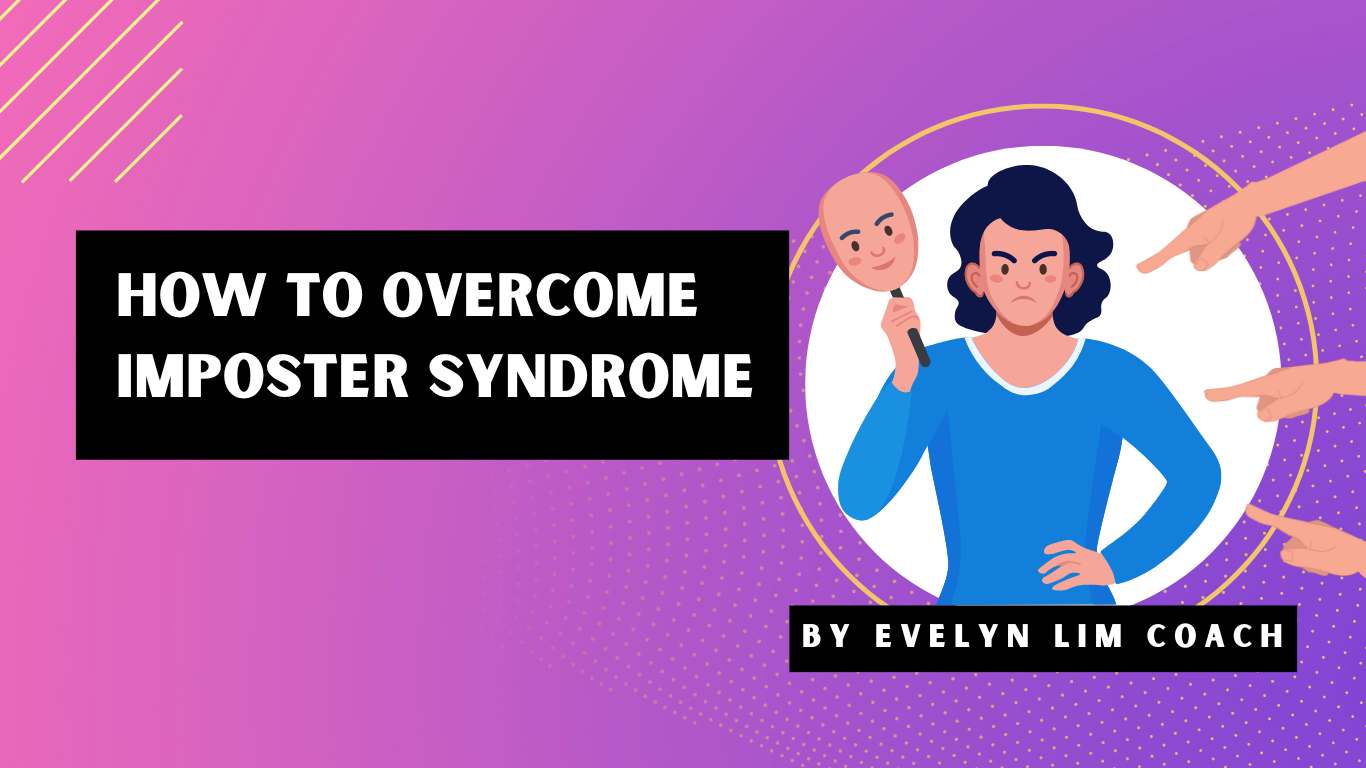3 Mindful Ways to Overcome Imposter Syndrome

Is imposter syndrome in the way for you with putting yourself out there?
Perhaps you have been hoping to step up as a coach, leader or to move to the next level.
But somehow you believe that you are some kind of a “fraud” even though you already have the experience or expertise in your field of work.
You just don’t feel “good enough”.
It is also possible that you are afraid of being exposed at any moment.
Well, in case you think that you are the only one facing imposter syndrome, what I’d like to share with you is: you are not alone!
Imposter Syndrome is More Common Than You Think
Statistics show that as high as 70% of adults have experienced the feelings associated with the Imposter Syndrome at some stage.
When I first found out how prevalent it is, I was rather taken aback. After all, this was something that I wouldn’t think of openly sharing. Thus, it was with great relief that I found out about how high achieving professionals often face imposter syndrome too.
Accordingly, women tend to be more afflicted as compared to men. Celebrities like Emma Watson, Michelle Pfeifer and even Facebook COO Sheryl Sandberg once confessed to having imposter syndrome.
“It’s almost like the better I do, the more my feeling of inadequacy actually increases. Any moment someone’s going to find out I’m a total fraud, and that I don’t deserve any of what I’ve achieved.” Emma Watson
“I still think people will find out that I’m really not very talented. I’m really not very good. It’s all been a big sham.” Michelle Pfeifer
Every time I was called on in class, I was sure that I was about to embarrass myself. Every time I took a test, I was sure that it had gone badly. And every time I didn’t embarrass myself — or even excelled — I believed that I had fooled everyone yet again. One day soon, the jig would be up.” Facebook COO Sheryl Sandberg
It’s not that men don’t get imposter syndrome. They do too. Seth Godin wrote in The Icarus Deception that after a dozen best sellers he still feels like a fraud all the time.
Perhaps finding out that you are not the only one having imposter syndrome signs can offer you some respite; as it did for me.
Where I once suffered from imposter syndrome, I hope to share what has worked to overcome it.
How Imposter Syndrome Gets Triggered
It usually starts with a trigger.
We could be triggered into feeling like an imposter as a result of a life event such as, receiving an award or promotion, moving up into a leadership position, starting our own business, putting ourself out there as a coach or influencer, or becoming a first-time parent.
By having imposter syndrome, we tend to downplay ourself and have a serious inability to internalise all our wins. Additionally, because we perceive any previous win was more like a “fluke”, we reason that we are unlikely to repeat the success. With every accomplishment, we are thinking, “I was lucky this time, but luck is going to run out. When will others discover that I’m not up to the job?”
Imposter syndrome plays a mental tape that holds us hostage emotionally. We risk failure or being rejected by others by putting ourselves out there. On the inside, no matter how many accomplishments we have made, we continue to feel lousy about ourself.
Negative Consequences from Having the Imposter Syndrome
Having the imposter syndrome can stop you from showing up. Your fears become self-fulfilling in that because you believe that you are “not good enough”, you don’t step into leadership. You may even shame yourself for not living up to your potential.
Or, you could also be desperately trying to hide your self-doubt and feelings of inadequacy with compensating behaviour by overworking yourself or struggling hard to prove your worth.
The outcome is living out days of anxiety, fearing the possibility of ridicule. As time goes on, the feeling of insecurity worsens. It’s a downward spiral since fear feeds on itself. You can be in an agonising wait to being exposed as a “complete fraud”.
How to Overcome Imposter Syndrome
Well, I have found that incorporating mindfulness helps. When I introduce a pause, it allows me to stop and mindfully reflect for some kind of reality check. There are 3 mindful ways and they are as follows…
1. Let go of Perfectionism
Be mindful that no one is perfect and hence, there is no need to hold ourselves to unrealistic standards.
You certainly don’t need to be perfect to put yourself out there. Or that you need to be as good as someone else before you start to claim your worth. If you are stepping into a new role, you can always learn.
Don’t be afraid of being authentic and letting others know where you stand. Manage your expectations, even as you step up. Understand that you are a work in progress.
2. Review your Past Accomplishments
It can be easy to forget what you have accomplished. The mind has a tendency to focus on past failures rather than successes. What can help is to keep a journal of what some of your past wins are. In your journal book, make a note of at least 5 wins right away.
A review can remind you that you are not a fraud. Now, this is not about inflating your ego. Rather it is for you to realise that you have got what it takes and that the world does need your contribution.
3. Check your Assumptions
Ask yourself if this fear of being a fraud has any basis.
Is it really true that you are deceiving people? Ask yourself if you are sharing what you know to the best of your knowledge. Or if you have truly done nothing to deserve your promotion.
With self-inquiry, you may just realise that this idea of being a fraud could be about keeping you safe. However, no one benefits if you decide to play small. On the contrary, it would be better to challenge yourself with stepping up to the plate.
Indeed, when I made things less about me but more about helping someone else, I became less affected by the imposter syndrome. Then, as I assisted more and more people with their problems, I found myself having more and more success stories. It was what helped my confidence to grow.
Overcome the Imposter Syndrome from the Inside-Out
For those with imposter syndrome, you may want to consider boosting self-esteem or worthiness. It was what a number of my clients did (listen in to the video below) too. Issues are often rooted in the belief of “I am not good enough” and can be overcome. Reach out to me if you need help.
By letting go of any false stories, we are better able to internalise a new set of positive beliefs — beliefs that are rooted in the authentic confidence of “I am already enough”.
Hope this helps!
May you shine your brilliance always,
Evelyn Lim
Abundance Coach for Women Solopreneurs


